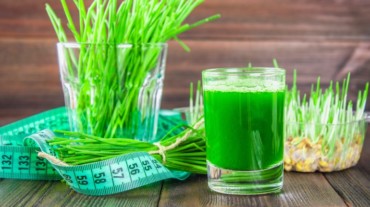
Superfoods is an oft-used term that is popular in health and fitness circles, and has been glorified for its several benefits. Whether it is to cure illnesses, fight ageing, or tackle weight loss—these foods have always occupied an undisputed position that’s hard to contest. But guess what? This term is not a scientifically or technically used word or not one that researchers really use. In fact, it has hardly any meaning in the medical research community.
Even when some studies around these superfoods are conducted in humans, these foods are tested in very high concentrations over short durations. The findings are not reflective of a regular balanced diet, and there aren’t very long-term studies to validate the claim that superfoods can fight illnesses or old age.
That said, not all superfoods are the same. But here are a few that are overrated, but are hardly super at all.
We’ve all heard of the many benefits of coconut oil and how it can be beneficial in protection from Alzheimer’s and cardiovascular disease. Although the oil is full of goodness, it is pretty overrated. There is no scientific research to show that coconut oil provides any protection against any of the above-mentioned illnesses. Instead, this oil is likely to raise your bad cholesterol by about 9%, reveals a 2020 study by the American Heart Association.

Another superfood that has become popular in the last few years is almond milk. There are many claims that suggest it offers the same benefits as whole nuts or soy milk. But is it true? Almonds are high in protein, antioxidants, fibre, and minerals. But almond milk is made from blanched skinless almonds, and a lot of the nutrition is lost during processing.
It is believed that honey can help to cure hay fever and plant allergies. Some also believe that it is a healthier alternative to refined sugar. But is it worth the hype? The answer is no. If you consume too much sugar, you can gain weight. This could also be from natural sources like honey, maple syrup, agave or any other natural sweetener.
Wheatgrass has been known to help with all kinds of illnesses, including cancer. It has generous amounts of chlorophyll, which gives it its green colour. But there are some preliminary studies that go on to show that although wheatgrass does contain some anti-cancer properties, there isn’t enough evidence to show that it’ll definitely help fight cancer in humans.

This variety of salt is considered healthier than refined salt, because it has extra minerals. But guess what? All kinds of salt are the same, because they have sodium and chloride. Sea salt, too, is the same as table salt, and it’s not going to magically increase your mineral intake—but too much of it can raise your blood pressure.
You might think exotic fruits like goji berries and dragon fruit are much healthier than local fruits you get in your market. If you love its taste, go ahead and enjoy these fruits. But if you think these fruits are more nutritious, then it’s best to let go of that idea.
If you think whole grains are better for you, then let’s tell you the truth. They are slightly better than the regular variety, but that’s all. Grains, irrespective of processing, are known to promote inflammation, and that’s not good for you.
Select Topics of your interest and let us customize your feed.
PERSONALISE NOWAlso, watch:
A research published in the journal Nutrients found that the consumption of wheat and cereal grains “can contribute to the manifestation of chronic inflammation and autoimmune diseases by increasing intestinal permeability and initiating a pro-inflammatory immune response.” That’s why it is better to get your carb intake from fruits and vegetables.